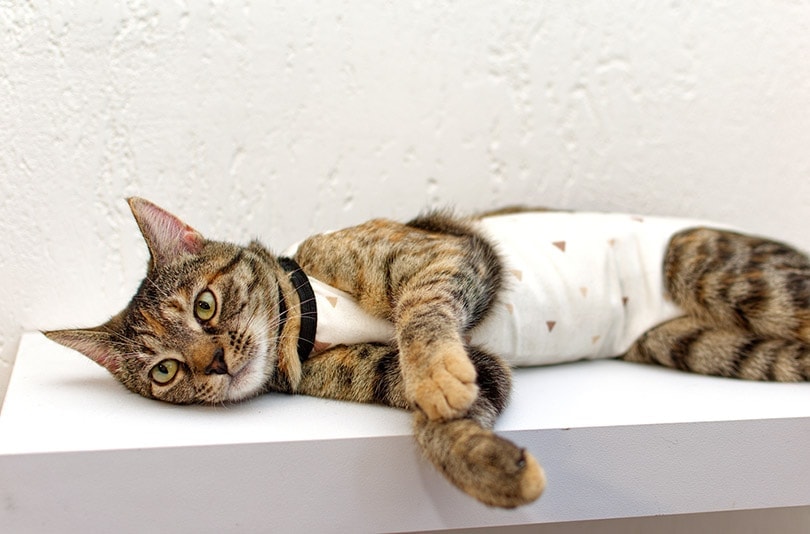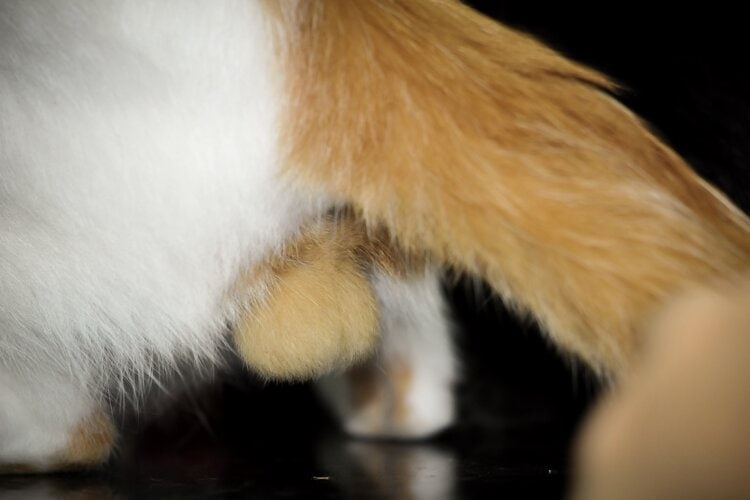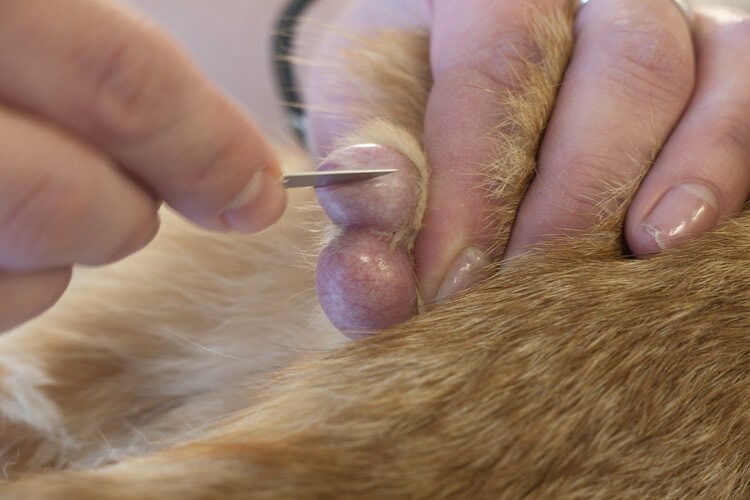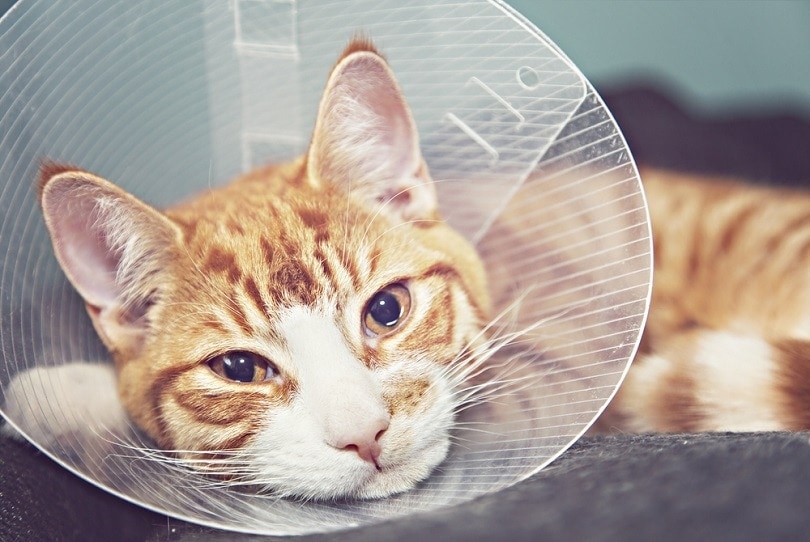When to Neuter a Cat? Vet-Reviewed Facts & FAQ
Updated on

Owning a cat means lots of love, affection, and playtime. But it’s also a lot of responsibility and care involved for ensuring your cat is happy and in good health. If you’ve just brought home a brand-new male kitten or young cat, thoughts of neutering will start to enter your head. You might even be wondering if you should neuter your cat and how it all works.
This post will go over not just when a male cat should be neutered but why you should have it done and how it’s accomplished. Typically, the male cat should be neutered around 4-5 months of age. We’ll also go over the best ways to look after your cat after the procedure.
How Old Should Your Cat Be for Neutering?
How old a cat should be for neutering depends on the circumstances. It’s recommended that most cats be about 5 months old for neutering1. If the cat belongs to a household, the best age is 4 to 5 months old, while cats in shelters could be neutered as young as 8 weeks old.
Studies have shown absolutely no reasons, either behavioral or medical, to wait longer than 5 months to sterilize a cat. The procedure is safe, as well as fast and easy with today’s technology.

Difference Between Spaying and Neutering
The primary difference between spaying and neutering is in the gender of the cat. Female cats are spayed, and male cats are neutered or castrated.
- Neutering/Castration: This procedure is much simpler than spaying the female. Two small incisions are made into the scrotum, where the testicles are removed. This surgery is typically done under a light anesthetic and doesn’t usually need stitches.
- Spaying: Spaying a female cat is a more complex procedure that usually requires a full general anesthetic, including a breathing tube (intubation). A small incision is made in the abdomen’s midline, where the ovaries and uterus are removed. The incision is always sutured up.
Both surgeries require preparation on the owner’s part both beforehand and after the procedure. The outcome for both is complete sterilization, so the females won’t be capable of becoming pregnant, and the males won’t be able to impregnate any females.
Why Should You Neuter Your Cat?
According to the ASPCA, there are 85.8 million cats owned in the U.S. alone, but 3.2 million cats enter animal shelters every year. And from those, about 530,000 cats are euthanized every year, which is 530,000 cats too many. For this reason, having cats spayed and neutered is vital!
Sometimes it’s also a great idea to neuter your cat for behavioral and health reasons. Beyond preventing the overpopulation of cats, unneutered tomcats have behavioral issues that can be reduced or stopped entirely after being neutered.
- Behavioral: Neutering reduces roaming and aggression, particularly towards other male cats. It will stop spraying/marking behavior, and they generally smell better. The fighting between male cats can also lead to passing infectious diseases like FeLV and FIV, which can be incurable in some cases.
- Health: Neutering can help prevent fights, as we already mentioned, which helps keep him healthy. Beyond this, it’s also known to eliminate the risk of your cat developing testicular cancer and reduce the risk of prostate cancer, prostatitis, and prostatic hyperplasia.
Not only do you get these benefits, but neutering is much less expensive than spaying and the recovery time is minimal. It’s also much cheaper than looking after litters of kittens.
What to Expect Before the Surgery
Your veterinarian will give you instructions to follow the day before the scheduled surgery. But, you’ll be advised not give your cat any food, usually 12 hours before the surgery.
This usually works out to not feeding your cat after midnight, but if your kitten is young, your vet might not want you to withhold any food. As with anything, just follow your vet’s instructions.

What to Expect After the Surgery
Your vet will give you instructions on how to take care of your cat after the surgery.
Yes, the surgery can be painful, but the vet will more than likely inject your cat with pain medication once the procedure is finished. This will make your cat more comfortable.
When you bring your cat home, he’ll be a little drowsy, but that will wear off quickly. The risks after neutering include infection, scrotal hematoma, and dehiscence (which is when the incision opens).
Some of the aftercare includes giving any medications your vet might have given you and observing your cat and the incision for any problems, such as:
- Redness or swelling
- Discharge, bleeding, and odor
- Difficulties going to the bathroom
- Lack of appetite
- Diarrhea and vomiting
- Change in behavior
- Lethargy
- Not urinating 24 hours after surgery
Speak to your vet straight away if you notice any of these issues.
Just ensure your cat is comfortable and keep other pets away from him for about 24 hours. If your cat licks the incision too often, you might want to consider an Elizabethan collar, otherwise known as the cone of shame. But things should go relatively smoothly if you follow your vet’s instructions and keep an eye on your cat.

When Will My Cat Be Back to His Regular Self?
For a standard neuter, it can take anywhere from 3 to 7 days for your cat to be back to his old self. It’s best to try to curb his activities so he’s not jumping as much, as you don’t want the incision to become swollen or open.
Are There Any Complications to Be Aware Of?
It would be best to get your cat neutered before they are a year old if possible. After this time, he’ll be more likely to continue spraying because of the testosterone levels in his body and the repetition of a previously learned behavior.
You should have a litter box with a low entry (only if your current litter box has very high sides) and line it with paper to avoid litter becoming attached to the incision.
You can expect a certain amount of constipation, but contact your vet if your cat hasn’t pooped after 48 to 72 hours. More importantly, while we mentioned this early, it bears repeating, as it’s crucial. If your cat doesn’t urinate within 24 hours after the surgery, you need to bring him to your veterinarian immediately, as it could indicate a severe complication.
Conclusion
The magic number to neuter your cat is when they are 5 months old. If you wait for too long, you risk your cat continuing to spray because of testosterone levels, and it becomes a habit after enough time.
It’s a necessary procedure that will keep your cat from wandering off and getting into fights, let alone spraying smelly urine around your house. It’s also an easier and less expensive procedure than spaying the female, so you have nothing to lose and everything to gain.
See Also:
- My Cat’s Spay Incision Is Slightly Open: Is It Normal? Vet-Approved Facts
- How Long Will It Take to Neuter a Cat?
Featured Image Credit: BadPixma, Shutterstock












